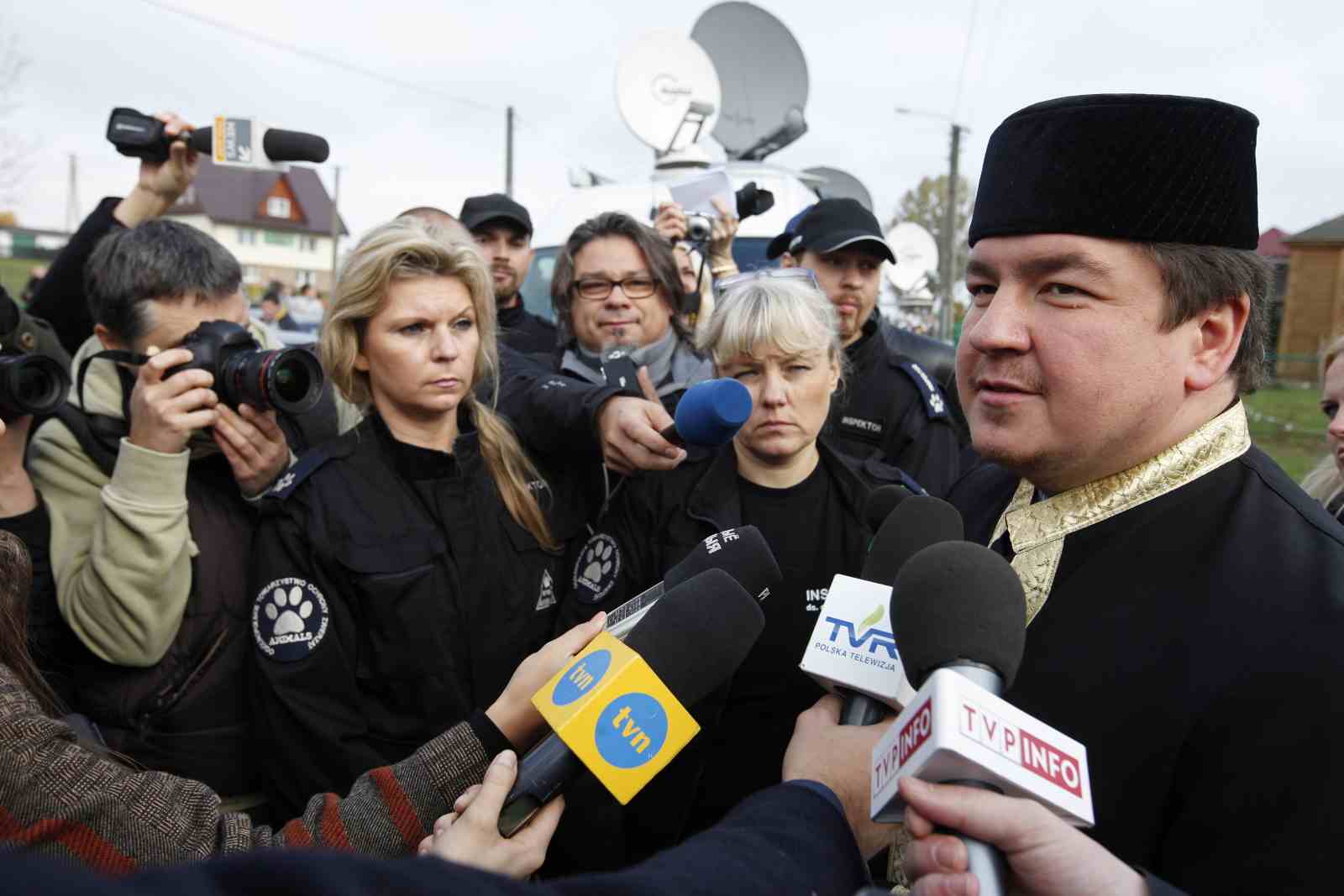
Chief Mufti of Poland Tomasz Miskiewicz (R), and two animal rights protesters (C) at Bohoniki on Tuesday. Photo: PAP/Artur Reszko
Chief Mufti Tomasz Miskiewicz has admitted to carrying out the 'ritual slaughter' on Tuesday in the village of Bohoniki, north east Poland, in spite of a state-imposed ban on the practice.
“I will not evade responsibility for this and I am at the disposal of prosecutors,” he has said.
“I carried out [the slaughter] myself, maintaining the culture and heritage of the Polish Tatars and Muslims,” he added.
Bohoniki has been a settlement of Poland's small Tatar community for several centuries, and Tuesday's rituals accompanied Eid al-Adha, the Feast of the Sacrifice, one of the two most important religious observances for Muslims.
Angry words were exchanged between villagers and animal rights activists on Tuesday, with the latter trying to enter a private property where the slaughter was due to take place.
“I believe that the religious slaughter on the holiday took place in accordance with the Islamic faith, the Constitution, the state law regarding the Muslim Religious Association and the law on national and ethnic Minorities, in which the Tatar minority is registered as an ethnic minority,” Miskiewicz said.
The Chief Mufti had declared last week that the slaughter would take place in Bohoniki. However, the Tatar community in the nearby village of Kruszyniany chose not to carry out the custom this year, while nevertheless stating that the new law is “a limitation on our religious rights.”
Slaughter without prior stunning was made illegal from 1 January 2013, after animal rights activists lobbied for the matter to be taken to Poland's Constitutional Court.
In July, MPs voted down a draft amendment to the law on animal protection that would have allowed for the slaughter of animals without prior stunning, if carried out so as to follow religious customs.
Prime Minister Donald Tusk had supported the amendent, and the government has encouraged both Poland's Muslim and Jewish communities to file a complaint with the Constitutional Court.
The maximum penalty for breaking the law concerning slaughter without prior stunning is two years imprisonment.
The animal rights groups that filed the complaints this week are the National Board of the Society for the Prevention of Cruelty to Animals, OTOZ Animals and the Krakow Society for the Prevention of Cruelty to Animals.
The prosecutor's office in Sokolka, north east Poland has one month to deliberate on whether to launch an investigation. (nh)